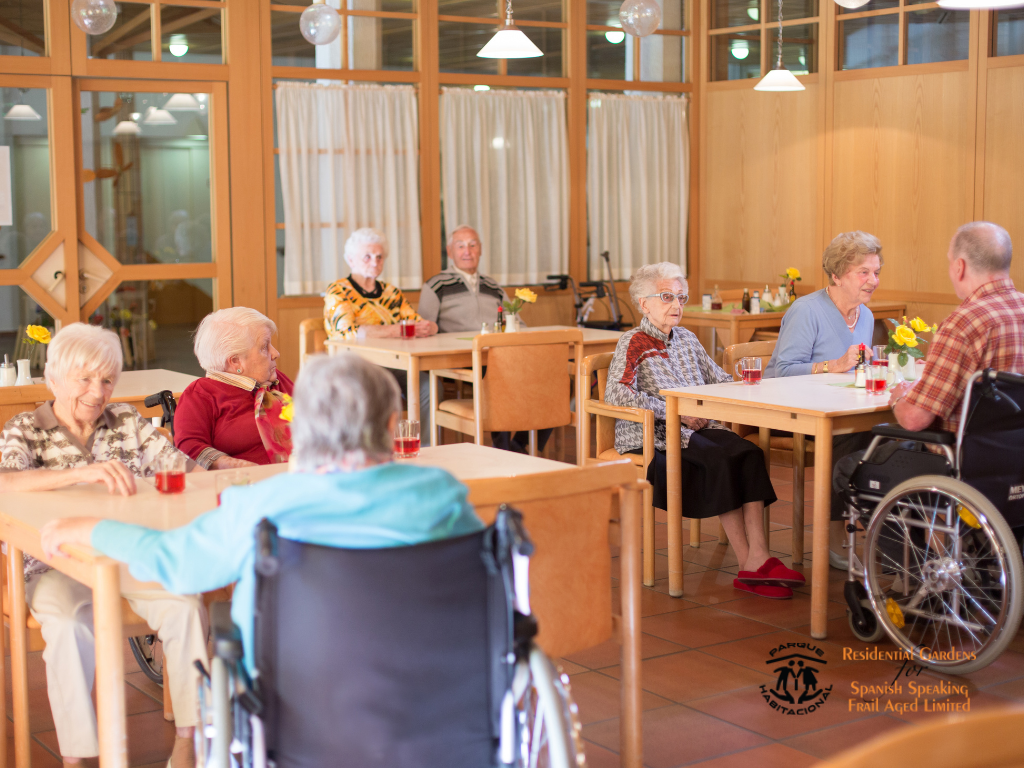Nutrition is a cornerstone of health and wellbeing, particularly in residential aged care settings. As individuals age, their nutritional requirements evolve, making tailored dietary plans essential for maintaining optimal health. For elderly residents, especially those in high care or low care senior care facilities, the impact of nutrition is profound, influencing not only physical health but also cognitive function and quality of life.
Assessing Nutritional Needs
Evaluating Nutritional Requirements in Aged Care
Assessing nutritional needs is a dynamic and integral part of the care provided in residential aged care homes. It begins with a comprehensive health assessment, conducted by qualified professionals, to identify each resident’s unique dietary requirements. This assessment considers various factors, including age, gender, body composition, medical history, and current health status.
The Significance of Health Assessments for Dietary Planning
Nutritional screening is an ongoing process to ensure that the evolving needs of senior care residents are met. It often involves regular weight monitoring, blood tests, and dietary intake evaluations to detect any nutritional deficiencies or excesses. By doing so, care providers can tailor interventions to address specific concerns, such as undernutrition or the management of chronic conditions through diet.
Special Dietary Requirements
Tailoring Diets to Allergies and Intolerances
Special dietary requirements are a critical focus in aged care nutrition. Allergies and intolerances are meticulously accommodated to prevent adverse reactions and ensure the safety and comfort of residents. For those with medical conditions like diabetes or hypertension, meals are designed to manage these conditions effectively. Diabetic diets, for instance, are crafted to regulate blood sugar levels, while sodium intake is monitored for those with high blood pressure.
Honouring Cultural and Religious Dietary Practices
Religious and cultural dietary considerations are also respected, with menus that reflect the diverse backgrounds of the residents. This not only caters to their personal preferences but also promotes inclusion and respect within the residential community. Facilities work closely with residents and often their families to understand and implement dietary restrictions and preferences, ensuring that each individual’s cultural and spiritual needs are honoured through the food they receive.
Meal Planning and Preparation

Crafting Balanced and Appealing Meal Plans
Creating balanced meal plans within a residential aged care setting is a meticulous process that requires consideration of the diverse nutritional needs and preferences of each resident. The objective is to provide meals that are not only nutritious but also varied and appealing, enhancing the overall dining experience. Dietitians and chefs collaborate to design menus that feature a wide range of foods to prevent monotony, paying special attention to the balance of proteins, carbohydrates, fats, and micronutrients essential for senior care.
Diversifying Menus to Enhance Resident Dining Experience
Variety and appeal are crucial to stimulate appetite and interest in food, especially important for residents who may have decreased sensory perception. Colourful plates, seasonal ingredients, and traditional dishes can evoke enjoyment and nostalgia, which are important aspects of mealtime satisfaction. Moreover, involving residents in meal planning can provide a sense of autonomy and participation, ensuring that their personal tastes and preferences are reflected in the meal offerings.
Role of Dietitians in Aged Care
Navigating Resident Nutrition and Health with Dietitians
Dietitians play a pivotal role in the health and nutrition of aged care residents. They are responsible for assessing individual nutritional needs, planning and approving menus, and ensuring that the dietary requirements for both high care and low care individuals are met. Their expertise is critical in managing a range of conditions through diet, such as diabetes, dysphagia, and obesity, thereby contributing to the residents’ overall wellbeing.
Integrating Dietary Care Within the Multidisciplinary Team
They also provide valuable nutrition education to residents, individually or in groups, empowering them with knowledge about their dietary needs and how to meet them. They work closely with the entire care team, including doctors, nurses, and care assistants, to integrate nutritional care with the residents’ overall healthcare plans. This interdisciplinary approach ensures that all aspects of a resident’s health are addressed cohesively.
Hydration Management
Prioritising Hydration in Elderly Care
Hydration is a fundamental aspect of elderly care, yet it is often a challenge in aged care environments. Adequate fluid intake is vital for maintaining physiological functions and preventing urinary tract infections, constipation, and dehydration — common issues in elderly populations. Strategies to promote hydration include offering fluids in various forms, such as water, juices, soups, and even gelatin, which can cater to residents who may have difficulty with fluid intake or have preferences for certain textures and flavours.
Monitoring Hydration: A Vital Health Indicator
Monitoring and managing hydration levels in aged care residents involve regular checks of fluid intake and signs of dehydration. Care staff are trained to recognize these signs and provide prompt interventions. Hydration stations, reminders throughout the day, and incorporating fluids into routine care activities are all methods used to encourage regular fluid intake and maintain hydration levels, ensuring that residents remain hydrated and healthy.
Feeding Assistance and Support
Assistance for Residents with Eating Challenges
Providing support for residents with eating difficulties is an essential service in aged care facilities. Whether due to physical limitations, such as reduced motor skills, or cognitive impairments like dementia, some residents require assistance at mealtimes. Care staff are trained to help with feeding while maintaining the dignity and independence of the individual. The use of adaptive utensils and dining aids, such as non-slip mats, angled cutlery, and easy-grip cups, can significantly enhance a resident’s ability to eat independently.
Creating a Supportive and Encouraging Mealtime Environment
The mealtime environment plays a crucial role in how well residents eat. A supportive atmosphere is characterised by a calm setting, where residents are encouraged to take their time with meals, socialise, and enjoy their food. Creating such an environment can significantly improve intake and promote better nutrition among residents, making mealtimes a pleasant and communal part of the day.
Monitoring and Evaluation of Nutritional Intake

Keeping Track of Nutritional Health Indicators
Regular monitoring of weight and nutritional intake is fundamental to managing the health of residents in residential aged care. This ongoing process allows dietitians and care staff to identify trends or concerns, such as weight loss or gain, and make necessary adjustments to dietary plans. Monitoring outcomes help in tailoring nutrition interventions to the changing needs of residents, ensuring that each individual receives the right balance of nutrients.
Leveraging Technology for Enhanced Nutritional Monitoring
Technology plays an increasingly significant role in tracking nutrition in aged care settings. Digital tools and software can help record dietary intake, monitor weight changes, and flag when a resident’s eating patterns deviate from their normal habits. This data-driven approach facilitates a prompt response to potential issues and supports the delivery of personalised nutrition care.
Challenges in Aged Care Nutrition
Overcoming Common Nutritional Hurdles in Aged Care
Nutritional challenges are commonplace in aged care, with poor appetite and weight loss being two of the most pressing concerns. These issues can stem from a variety of causes, including medication side effects, declining physical health, or reduced sensory perception. To address these challenges, aged care facilities employ a range of strategies. These may include offering nutrient-dense foods, enhancing flavours without increasing sodium, and providing small, frequent meals that are easier to manage.
Implementing Effective Strategies for Nutritional Wellbeing
Good nutrition in aged care requires a comprehensive approach. Enlisting the expertise of dietitians, providing ongoing education to care staff, and involving residents in dietary decisions are all key to success. Nutrition plays a critical role in the health and quality of life of elderly individuals, and addressing these challenges head-on is essential for the provision of high-quality aged care.
Family and Community Involvement
Family Participation in Nutritional Choices
Family involvement in meal choices is an integral aspect of personalised care in aged care facilities. It ensures that the dietary preferences and needs of residents are heard and respected. By involving family members, aged care providers can gain insights into the residents’ past food habits, favourite dishes, and cultural practices, which can be incorporated into the meal planning process. This engagement also helps to reassure family members that their loved ones are receiving nutrition that is not only beneficial to their health but also enjoyable and comforting.
Educating Families on Nutrition in Elderly Care
Community resources play a pivotal role in supporting the nutritional needs of residents in aged care. These resources can range from local produce suppliers that enable the provision of fresh ingredients to partnerships with nutritionists who offer guidance on diet adjustments for specific health conditions. Furthermore, communities can be a source of volunteers who contribute to meal preparation or dining assistance, adding to the supportive environment of the care home.
conclusion
Incorporating these elements into aged care nutrition will potentially lead to a revolutionised approach that emphasises individualised care, community support, and the integration of cutting-edge technology to enhance the quality of life for residents in high and low care senior care facilities.



